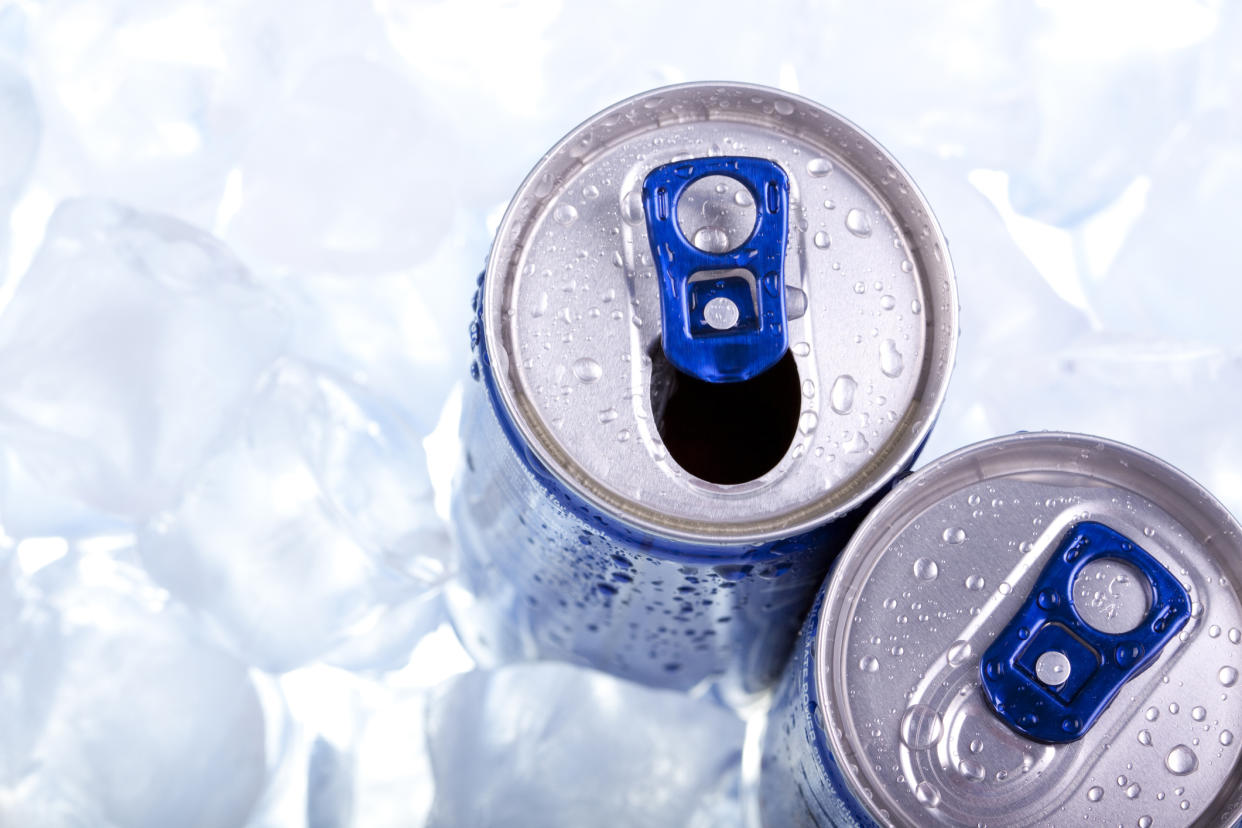Are energy drinks bad for your health? New study says yes.

Few people would ever claim that energy drinks are healthy, but it’s easy to assume they’re fine for your health given how popular they are. But new research suggests they’re actually pretty bad for you.
The study, published in Frontiers in Public Health, reviewed current scientific evidence on energy drinks and found that their short-term benefits (namely, they can make you feel more awake) are outweighed by scary health risks like mental health problems, risk-seeking behavior, increased blood pressure, obesity, tooth erosion, and kidney damage.
The study’s researchers argue that there is a need for more regulatory oversight in the energy drink market, including caffeine limits, restricted sales, and regulations on marketing strategies, which are often targeted at kids and teens.
While each energy drink is slightly different, most contain water, sugar, caffeine, vitamins, and stimulants like guarana, taurine, and ginseng. They can have up to 100 milligrams of caffeine per ounce, which far exceeds the recommended daily limit of 400 milligrams for adults. (An 8-ounce cup of coffee, by comparison, contains 95 milligrams of caffeine for the entire cup.)
That’s pretty concerning. “The excess caffeine may contribute to cardiovascular outcomes, such as increased blood pressure,” study co-author Josiemer Mattei, an assistant professor of nutrition at the Harvard T.H. Chan School of Public Health, tells Yahoo Lifestyle. While caffeine may have some beneficial effects when you have it in moderation, at high doses it can impact your cardiovascular system, she says. “The caffeine amount at which these symptoms may occur is lower for children and adolescents than for adults, making the high content of caffeine in energy drinks so concerning for younger age groups,” Mattei says.
The sugar in energy drinks isn’t great either. It can increase a person’s risk of obesity, high blood sugar, and dental cavities, she points out. There are also plenty of other ingredients in the drinks that there isn’t a lot of scientific information about, which is concerning.
Moreover, it’s hard to know what, exactly, is in your energy drink. “A lot of these have ingredients in them that aren’t on the label,” David Cutler, MD, a family medicine physician at Providence Saint John’s Health Center in Santa Monica, Calif., tells Yahoo Lifestyle.
Energy drink companies can get away with this because their product is considered a supplement by the Food and Drug Administration and isn’t closely regulated, Beth Warren, founder of Beth Warren Nutrition and author of Living a Real Life With Real Food, tells Yahoo Lifestyle. “Therefore, consuming energy drinks can be potentially harmful, or their affects are unknown,” she says. That’s why she recommends that people be “highly cautious” of drinking these.
Ultimately, “the long-term negative health effects of consuming energy drinks outweigh any potential short-term benefit,” Mattei says. Cutler agrees. “It’s best to avoid them altogether,” he says.
Read more from Yahoo Lifestyle:
• Your birth month reveals plenty about your risk for depression, diabetes, and more
• Mom petitions to change allergy policy in schools after boy dies eating grilled cheese
• Woman jogger stabs man who grabbed her from behind: Can self-defense keep you safe?
Follow us on Instagram, Facebook, and Twitter for nonstop inspiration delivered fresh to your feed, every day.


